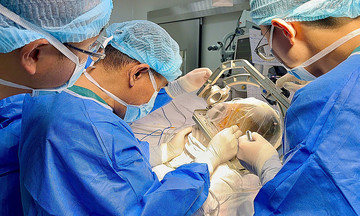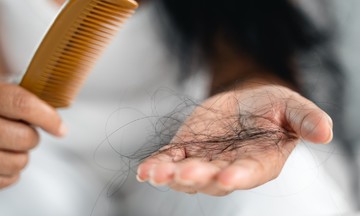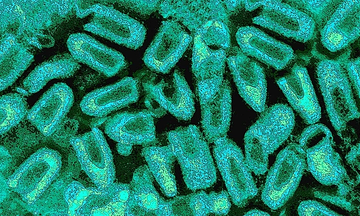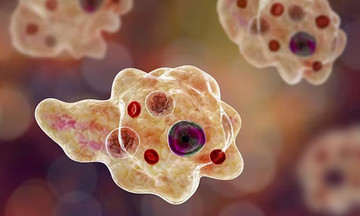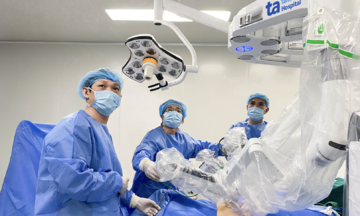Zinc plays a vital role in over 300 enzyme reactions and the synthesis of sex hormones, thyroid hormones, and insulin. Doctor Nguyen Anh Duy Tung, a specialist in dietary therapy at Tam Anh General Clinic, District 7, explains that zinc deficiency can cause hormonal imbalances, impacting reproductive health, immunity, and energy metabolism. Adults need an average of 8-11 mg of zinc daily. Since the body doesn't store zinc, regular dietary intake is essential.
Oysters and shellfish are naturally rich in zinc, helping maintain stable testosterone levels. These foods are easy to incorporate into daily meals.
Red meat, such as beef and lamb, is packed with zinc and high-quality protein. Consuming 100-150 g of red meat per meal provides energy and helps maintain hormonal balance thanks to its zinc, iron, and B vitamins. Individuals at risk of metabolic disorders should prioritize lean meat, prepared by boiling, steaming, or grilling.
 |
Eating oysters provides the body with zinc. Photo: Bui Thuy |
Eating oysters provides the body with zinc. Photo: Bui Thuy
Pumpkin seeds and other nuts contain zinc and heart-healthy unsaturated fats. Pumpkin seeds are also rich in phytosterols – natural plant compounds structurally similar to cholesterol – which can help reduce the risk of benign prostatic hyperplasia, supporting men's reproductive health.
Whole grains like oats, brown rice, and barley contain plant-based zinc and are rich in fiber, which can help control blood sugar and promote gut health. Incorporating whole grains into breakfast or snacks is a healthy way to boost zinc intake for both men and women.
Eggs and dairy products are rich in zinc, vitamin D, and choline, which support metabolism regulation and maintain stable thyroid and insulin hormone function. Dairy products like cheese and yogurt also provide calcium and probiotics, contributing to metabolic balance.
Doctor Duy Tung notes that women are often more susceptible to hormonal imbalances. Women can supplement with Lepidium meyenii extract to help regulate the brain-pituitary-ovary axis, balancing estrogen, progesterone, and testosterone levels, thereby reducing hormonal disorders. For men, natural extracts like eurycoma longifolia, French maritime pine bark extract, and oyster extract can promote the body's natural testosterone production, improve sperm quality, and stabilize nitric oxide levels, contributing to enhanced physiological function.
In addition to dietary zinc, maintaining a healthy lifestyle is crucial. This includes getting enough sleep, managing stress, exercising regularly, and undergoing regular health checkups to monitor hormone levels. It's important to avoid the misuse of growth hormones, testosterone, estrogen, or insulin, as well as high doses of supplements without a doctor's prescription, to prevent hormonal imbalances and unwanted side effects.
Trong Nghia
| Readers can submit nutrition questions here for doctors to answer. |




